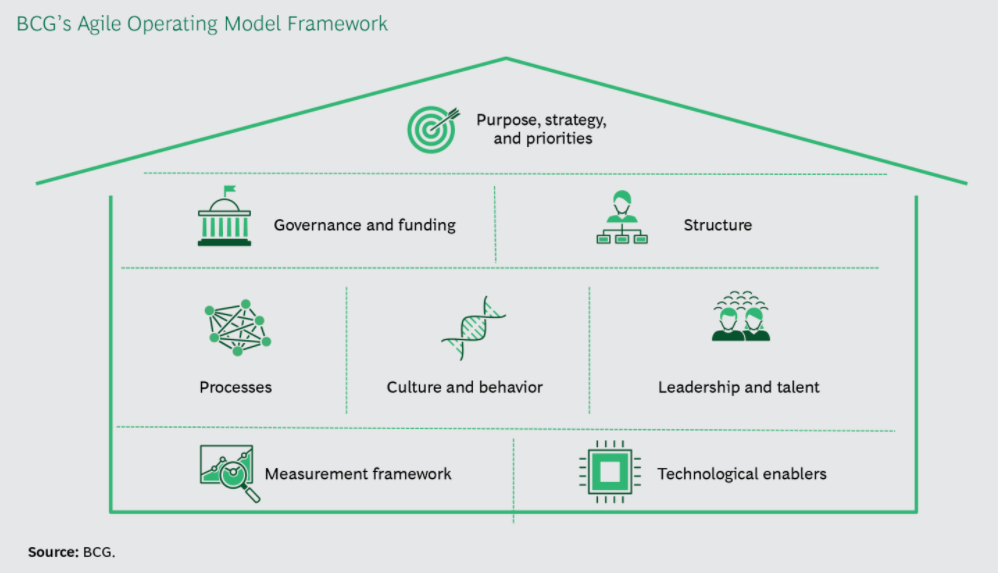Summary
The Boston Consulting Group released a report into how Government can take advantage of agile ways of working to be more responsive, deliver high-quality outputs quicker, enables greater flexibility, breaks down functional silos, empowers employees and more. The paper reflects on case studies, including from the World Bank and then further provides a framework into how agile can be implemented in Government.
Key Points
- The paper reflects on how agile emerged, including from the early 2000’s from software engineering
- It further explores how agile can be used within a Government context
- The paper discusses the benefits of agile for Government, including:
- helps teams organize to deliver high-quality outputs quickly
- facilitates flexible leadership and organizational structures
- collaborative cultures and behaviors
- breaks down functional silos
- increases transparency and accountability
- empowers employees
- more effective product and program design
- reduces the risk of implementation failure
- The paper provides reflections on case studies, including at the World Bank.
- Highlights how agile can be used in a public sector context. Noting however that “agile is not a silver bullet”.
- Provides a high level implementation guidance, including a agile operating model framework



No responses yet